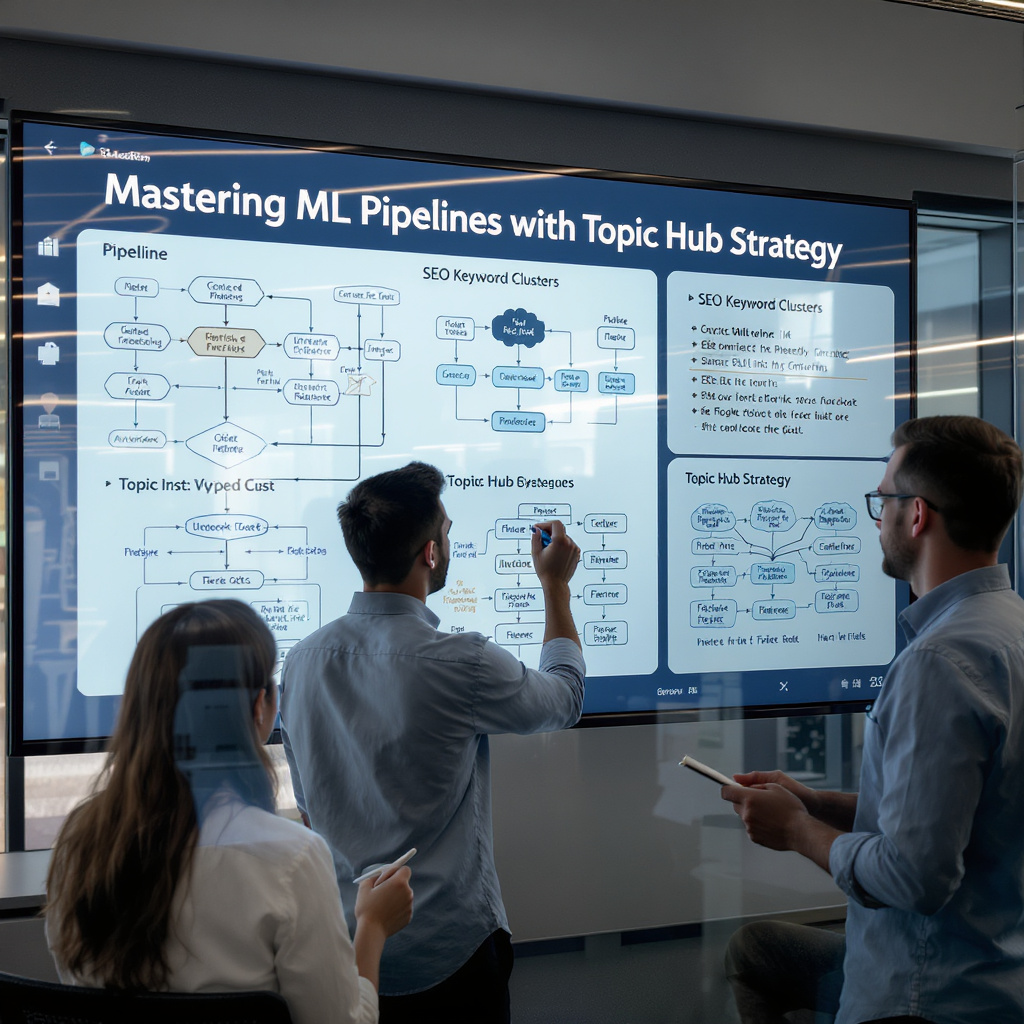
-
5/10/2025
In this pillar post, we present a comprehensive overview of a machine learning (ML) pipeline while demonstrating how a Pillar + Cluster (Topic Hub) approach boosts both user experience and SEO. Each stage below links to a dedicated cluster post for deeper insights.
- Data Ingestion & Cleaning: Techniques to unify, impute, and filter raw inputs.
- Feature Engineering: Best practices for creating predictive inputs and managing a feature store.
- Model Training & Evaluation: Strategies for cross-validation, metric selection, and performance tuning.
- Deployment & Monitoring: Options for cloud endpoints, on-device inference, batch scoring, and drift detection.
- Real-World Case Studies: Examples from retail, manufacturing, and more.
Key Pipeline Stages
- Data Ingestion: Aggregate sources such as databases, APIs, and IoT feeds.
- Cleaning & Validation: Impute missing values, harmonize formats, and filter outliers.
- Feature Engineering: Extract domain-driven signals, manage feature versioning, and reuse with a centralized store.
- Model Training & Evaluation: Split data, apply cross-validation, and choose metrics aligned to business goals (accuracy, precision, recall).
- Deployment: Containerize with Docker, serve via REST/gRPC, or embed on edge devices.
- Monitoring & Retraining: Track data/model drift, latency, and set automated alerts; embed scheduled retrains.
Benefits of the Topic Hub Strategy
- Authority: A single pillar post signals depth on ML pipelines.
- Internal Linking: Cluster posts reinforce related subtopics, improving SEO and navigation.
- Modularity: Teams can update or expand clusters without overhauling the main guide.
By combining this pillar outline with focused cluster posts, you create a scalable content ecosystem. Readers land on the comprehensive overview, then dive into each subtopic for actionable details—fueling engagement, building expertise, and strengthening your site’s search ranking.
